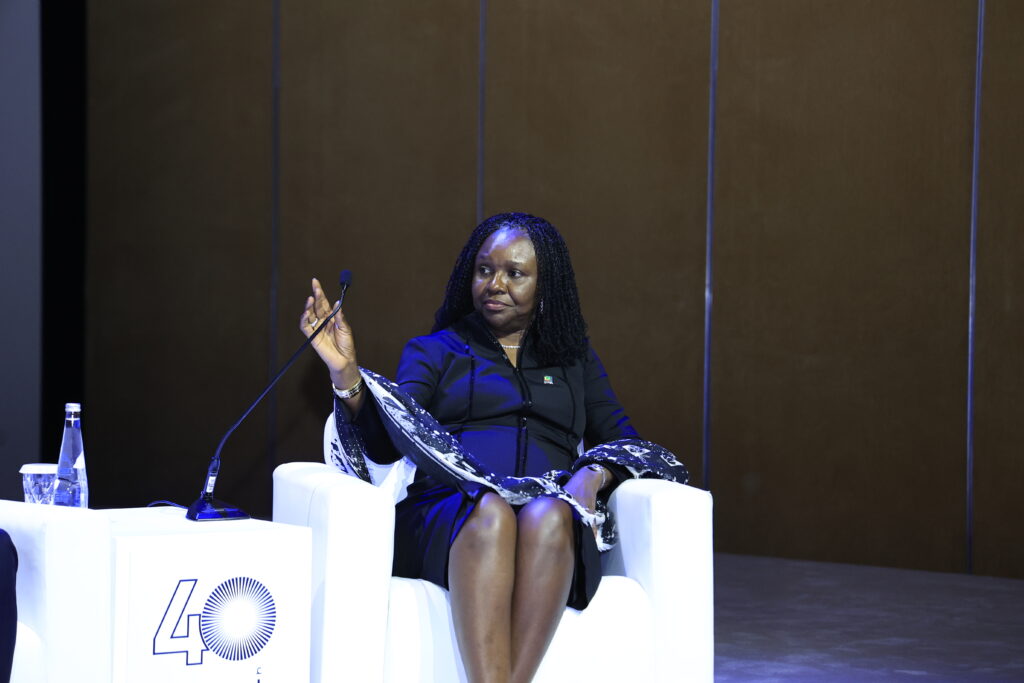By Jemimah Wellington, JKNewsMedia Reporter
THE NIGERIAN National Petroleum Company (NNPC) Ltd has highlighted the urgent need for collaboration and transparency among stakeholders in the oil and gas sector.
Group Chief Executive Officer, Mele Kyari, delivering a vital message during a Strategic Panel Session titled “Decarbonising Operations across Upstream, Midstream and Downstream,” emphasized the shared responsibility of all parties in achieving net-zero carbon emissions by 2050.
He also notes that the quest to decarbonize the global energy industry faces significant hurdles, especially for developing nations.
During the Abu Dhabi International Petroleum Exhibition & Conference (ADIPEC 2024), Kyari, who was represented by Mrs. Oritsemeyiwa Eyesan, NNPC’s Executive Director for Upstream, articulated the complexities facing Africa, particularly the intertwined challenges of decarbonization and energy poverty.

Kyari stated, “the world is at a crossroads,” addressing an audience of industry experts and leaders. “We must prioritize collaboration and openness, recognizing that vilifying those who lag behind will not close the gaps we face.”
He outlined two critical policy shifts Nigeria has made to support its decarbonization agenda.
First, the country has declared the decade of gas as a transition phase, moving from a primarily diesel and fuel-based economy to one driven by natural gas.
Second, the removal of fuel subsidies is expected to further bolster this shift, allowing Nigeria to harness its vast gas reserves more effectively.
Kyari reaffirmed Nigeria’s commitment as a signatory to the Oil & Gas Decarbonisation Charter (OGDC), which aims for a complete gas flare-out by 2030.
“With our reserves estimated at 209 trillion cubic feet, we have a tremendous opportunity to lead in gas utilization for both automotive and power generation,” he explained.
However, he cautioned that access to funding for gas projects remains a significant barrier.
“The capital for these projects often relies on International Oil Companies (IOCs), which focus primarily on export gas. If we are to address our energy challenges, it is crucial to ensure that the global south has access to necessary funding to tackle these issues.”
Furthermore, Kyari’s remarks affirmed the need for a nuanced approach to decarbonization efforts, noting that not all nations progress at the same pace.
“We must recognize the differences in our situations while striving towards a common goal,” he stated.
“The OGDC must provide a level playing field, accommodating the unique challenges faced by less energy-endowed countries.”
Highlighting the importance of collaboration, Kyari pointed to partnerships like that with TotalEnergies, which has introduced advanced methane measurement and detection technology to help NNPC mitigate emissions effectively.
“This type of partnership exemplifies how we can pool our resources and knowledge to tackle these existential problems together,” he remarked.
ADIPEC 2024, which has drawn over 180,000 attendees, is recognized as the world’s largest and most inclusive gathering of energy professionals.
This year’s theme, “Connecting Minds. Transforming Energy,” reflects the urgency for innovation and collaboration in addressing the complex challenges of energy transformation.
Kyari also notes that as global energy leaders continue to seek solutions, there’s need for cooperation and transparency to serve as a critical reminder of the collective responsibility in transitioning to a sustainable energy future.
He said this can only be achieved through shared initiatives and mutual understanding so that the oil and gas sector can effectively navigate the path towards decarbonization, ultimately benefiting not only Africa but the entire planet.





